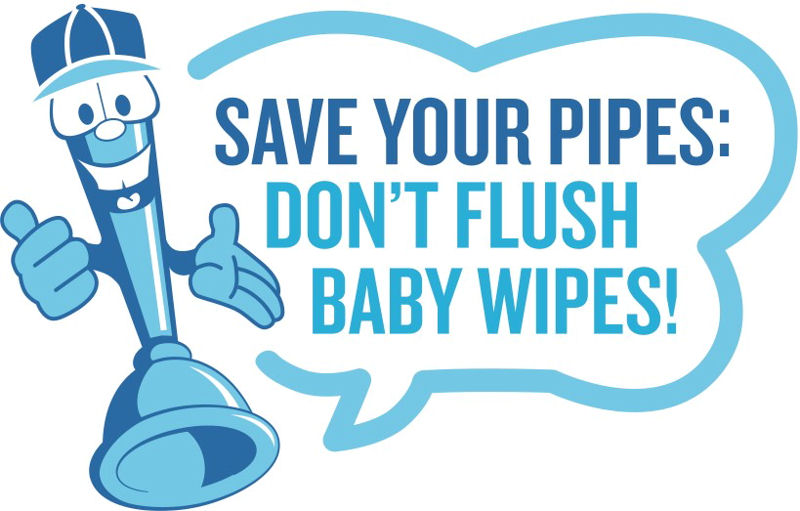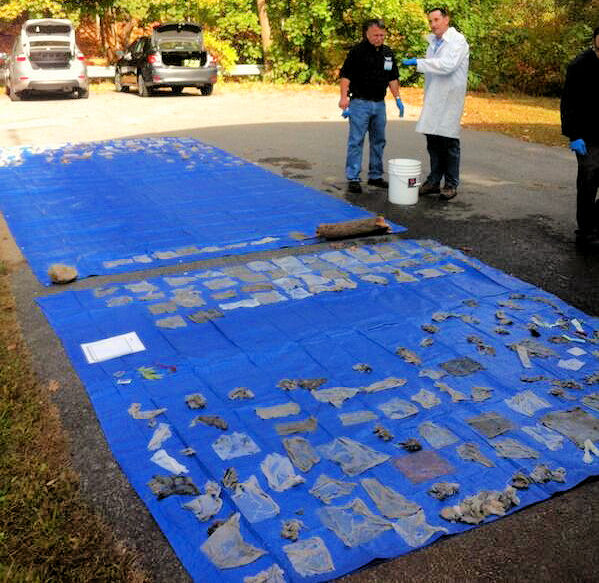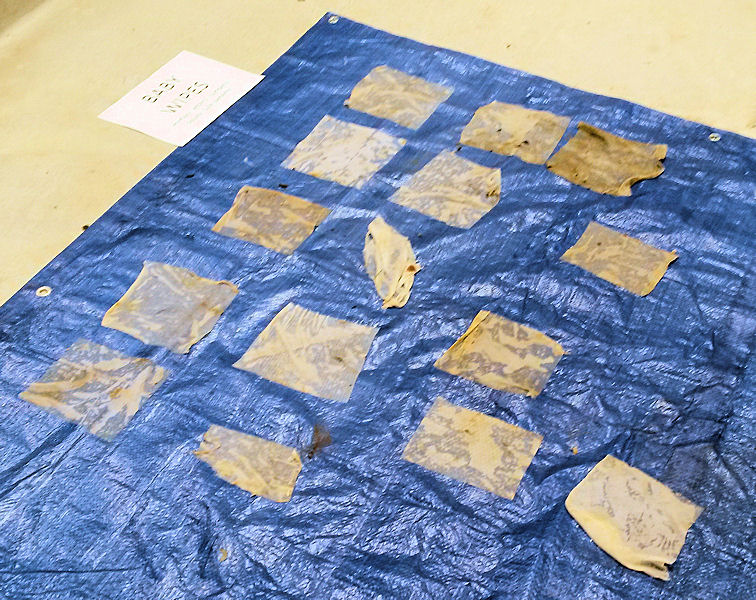
Maine’s “Save Your Pipes: Don’t Flush Baby Wipes” campaign was launched Jan. 21 to raise awareness about the environmental and economic effects of flushing baby wipes. Photo courtesy of Aubrey L. Strause, owner of Verdant Water PLLC (Scarborough, Maine) and 2014 president of the the Maine Water Environment Association (MEWEA).
The U.S. Environmental Protection Agency (EPA) New England Region has honored Maine’s “Save Your Pipes: Don’t Flush Baby Wipes” campaign with its Environmental Merit Award. The award recognizes outstanding contributions on behalf of the region’s public health and natural environment.
The $113,000 campaign, launched on Jan. 21, is a joint effort by the Maine WasteWater Control Association (now known as the Maine Water Environment Association; MEWEA), the Portland Water District, and the Association of the Nonwoven Fabrics Industry (Cary, N.C.). The objective of the campaign was to raise awareness through communications outreach about the environmental and economic effects of flushing baby wipes.
The campaign website — www.saveyourpipes.org — features two videos showing a mock “What the Flush?!?” game show, designed to illustrate to the public what should and shouldn’t be flushed. The website also includes an infographic, links to other resources, and information about the potential damage that nonflushable products can cause to local sewer pipes and equipment in public wastewater treatment systems.

Organizers collected materials intercepted by a screening system installed in a pump station in the area targetd by the campaign before and after the launch to find a decrease in volumne of wipes. Photo courtesy of Strause.
Doug Gutro, leader of the government and community relations team with EPA, said the campaign represents an outstanding effort in calling attention to the problems associated with flushing baby wipes. “Baby wipes in our septic systems and sewers are a real issue,” Gutro said. “Consumers need to know about the resulting unsanitary effects and financial consequences that can occur to both municipalities and homeowners.”
Baby wipes were targeted specifically by the campaign after field tests at a pump station demonstrated that baby wipe products represented a sizable portion of the items responsible for causing clogs, said Aubrey Strause, owner of Verdant Water PLLC (Scarborough, Maine) and 2014 president of the MEWEA.
“Market research conducted prior to the campaign also revealed that 40% of baby wipes sold were being used by adults for reasons that did not include babies,” Strause said. “This was the demographic we needed to reach.”

The campaign is a joint effort by the MEWEA, Portland Water District, and Association of the Nonwoven Fabrics Industry (Cary, N.C.). Photo courtesy of Strause.
Since the campaign addressed an uncomfortable topic, Strause said the organizing team turned to humor to make it memorable and effective. “In the game show video, [MEWEA] also felt that it was important that the actors were seen putting baby wipes into the trash. This way the message would be abundantly clear to the public,” Strause said.
Over the course of 8 weeks prior to the campaign launch, organizers collected materials intercepted by a screening system installed in a pump station in the area targeted by the campaign. They separated and measured the volume of baby wipes to establish a baseline for calculating results.
According to Strause, collections conducted 8 weeks after the campaign ended show a decrease in volume, including the baby wipes that were targeted. “Market research completed pre- and post-campaign also indicates a change in consumer understanding,” Strause said.
— Jeff Gunderson, WEF Highlights








June 24, 2014
Achievements, Featured